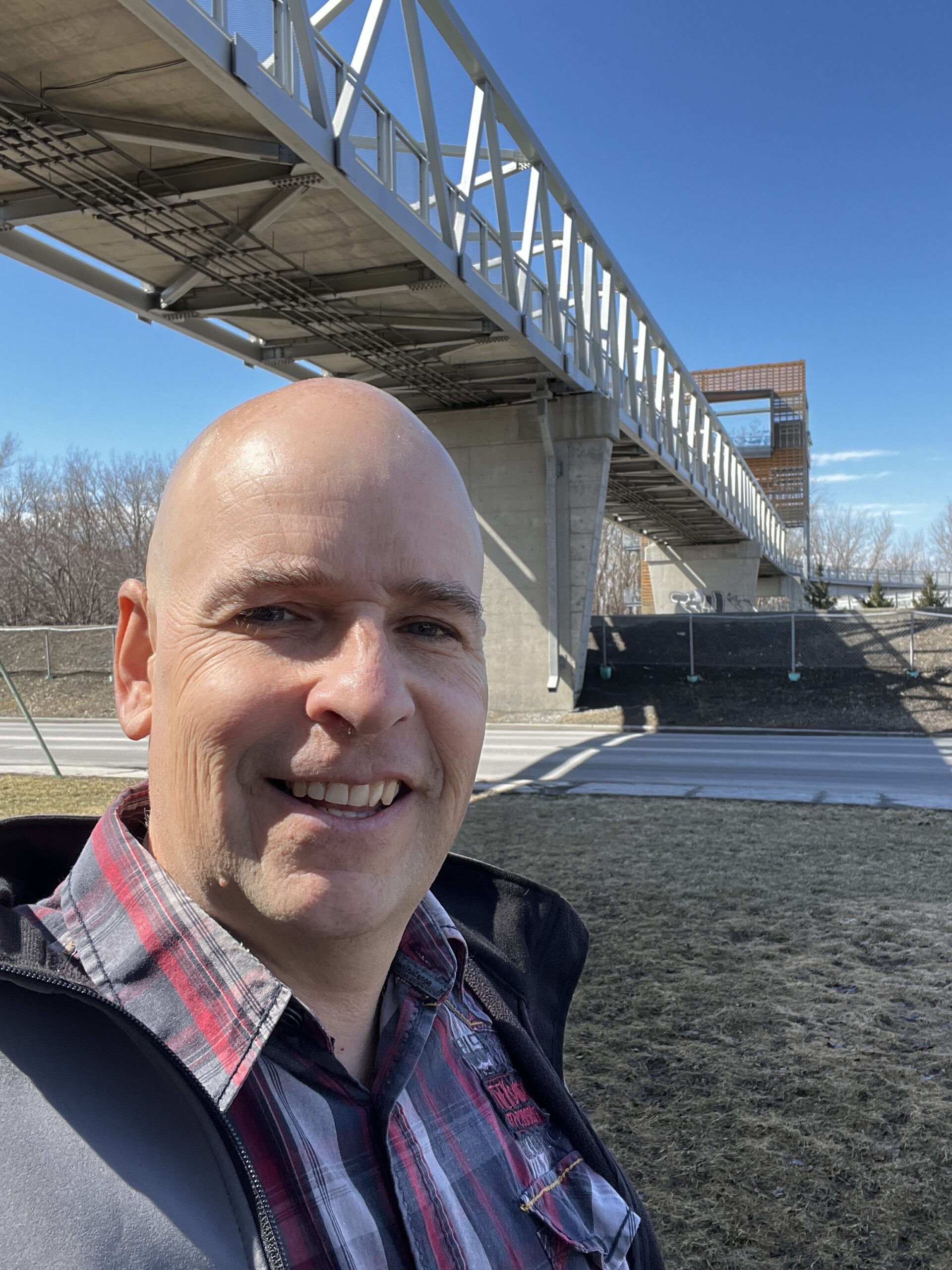What is your professional background and what motivated you to choose civil engineering?
My career path has been marked by a variety of experiences. After graduating in civil engineering from Ahuntsic College in 1993, I worked in a number of sectors, including printing and IT, before returning to engineering in 2001. After joining CIMA+’s Communication Systems team, I worked on electrical distribution projects for Hydro-Québec, as part of the Electrical Engineering team. In 2006, I joined the Bridges and Tunnels team as an inspector and site supervisor, after a short interlude on the design team. For the past 10 years or so, my work has focused exclusively on inspection.
How do you see the role of transportation in your field of study?
For me, transportation isn’t just about getting from point A to point B. It represents a harmonious fusion between roads, bridges and the landscape that surrounds us, making it an integral part of our daily environment. This perception of transportation is one of the reasons why I chose to study civil engineering, in addition to the many career opportunities offered in this area.

Do you believe your work makes a difference in the community, and why?
We carry out regular inspections of various infrastructure assets to detect any defects that could compromise user safety. By identifying and remedying these problems, our work can save lives and ensure the safety of all those who use our roads.
Why did you choose to join CIMA+’s Bridges and Tunnels team?
My interest in the electrical distribution sector was waning by the day, and a former colleague urged me to join him in the Bridges and Tunnels team, which was growing to meet increasing needs. That’s how I began my transition.
How would you describe the CIMA+ Bridges and Tunnels team?
Within this team, I’m surrounded by young, dynamic and ambitious professionals. Their boundless energy and unfailing motivation are a real source of inspiration, encouraging me to push my own limits day after day.
What qualities should a person in your role possess?
In my opinion, essential qualities for this role include strong listening skills to understand the needs and concerns of the team and stakeholders. Empathy is also crucial, as it builds strong relationships and fosters a harmonious working environment. Furthermore, patience is key to solving the complex challenges that can arise in our field. Also, to maintain the quality and fluidity of projects, being available to offer support and advice when needed is just as important as being efficient in the execution of tasks.
What is your role within the team and what are your preferences in terms of tasks?
My role has several dimensions. I’m responsible for coordinating and supervising several projects on a daily basis. I particularly enjoy the opportunities my job gives me to work outdoors. But what I’m most passionate about is mentoring. I have the privilege of coaching and training our young recruits as they embark on their careers. What gives me the greatest satisfaction is observing the evolution of these young people, month after month. Training the next generation is a very gratifying task.
What advice would you give to the next generation of structural inspectors?
For those new to the profession, I can’t stress enough the importance of patience. Learning in this field is an ongoing and sometimes lengthy process, but I can assure you that every step is worthwhile. Every day brings its share of learning and new experiences, and the wealth of knowledge you acquire over time, the challenges you overcome and the skills you develop make this journey incredibly rewarding. So don’t lose sight of your goals, be persistent and make the most of every moment of your professional journey as a structural inspector.
Where do you see yourself in 5, 10, 20 years?
In five years, I see myself still fully committed to my career, looking to broaden my skills and take on new responsibilities. In 10 or 15 years, I might consider gradually reducing my working hours and devoting more time to travelling and exploring bridges around the world, as well as scuba diving in remarkable locations.